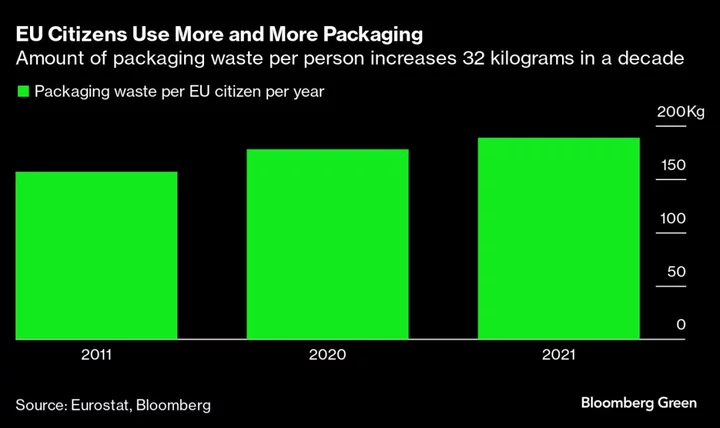The European Union’s plans to overhaul the way consumers use packaging from mini shampoo bottles to the wooden box surrounding Camembert cheese survived a chaotic vote as the bloc seeks to make waste management and recycling a key part of its climate goals.
EU parliamentarians agreed on Wednesday to exempt small single-use packaging in the restaurant sector such as sugar sachets and mayonnaise tubes from an outright ban. But their position also means that Europeans may have to forgo the free toiletries they get at hotels.
The “Packaging and Packaging Waste” law has been one of the most lobbied by industry, with lawmakers facing more than 500 amendments. That led to a marathon voting session, which carved out exemptions for products with an important cultural heritage like Camembert, yet left the overall framework of the rules in tact.
While lawmakers backed measures that included ensuring paper and plastic packing should all be recyclable by the end of the decade, several amendments seemed to conflict with each other, such as whether non-fossil plastics could contribute toward recycling targets.
“It is right to combat the flood of plastic in particular and to improve recycling in those European countries where it is not yet working very well,” said Peter Liese, a lawmaker for the center-right European People’s Party. “But we don’t need a waterfall of bans. Paper is a sustainable material and in Europe we really have other things to worry about at the moment than paper bags.”
The EU’s overall goal is to reduce packaging waste 5% by 2030 from 2018 levels, and by 15% by 2040. The final shape of the legislation will still need to be negotiated with member states.
Read more: The EU Is Cracking Down on Plastic. Will Other Countries Follow?
McDonald’s Corp. had been among those criticizing the rules for its emphasis on promoting reusable products, like cups, rather than throwaway plastic and paper products. The glass industry praised lawmakers for protecting “distinctive packaging designs” that epitomize some bottles in the liquor sector, for example.
“Unique and creative packaging shapes are a key touchpoint on the shelves for all consumers,” said Adeline Farrelly, secretary general of FEVE, a lobby group for glass. The “vote mitigates against the risk that heavier, but circular, materials like glass are replaced by lighter packaging materials.”

